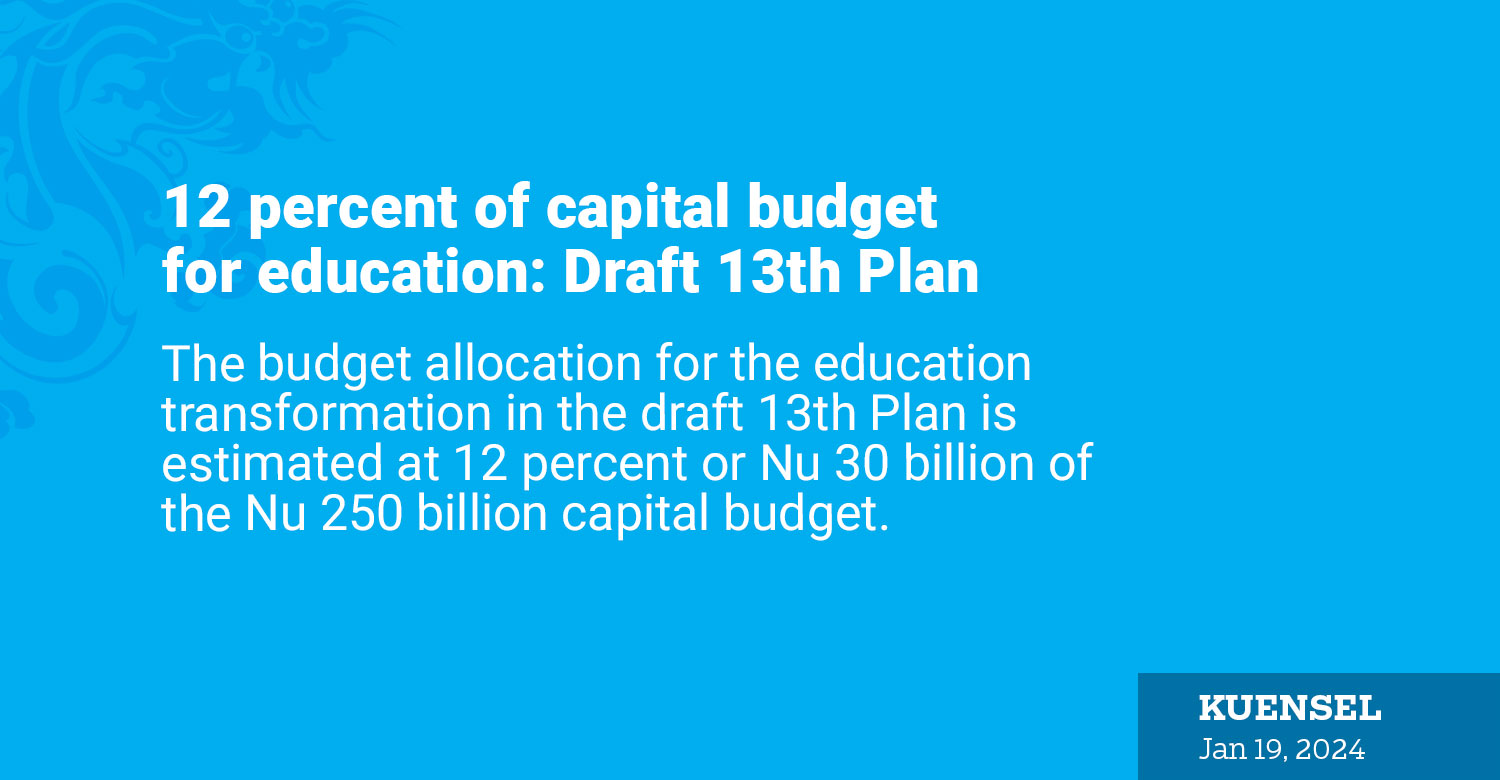…aims to reduce to 319 from 505 schools
Thukten Zangpo
The budget allocation for the education transformation in the draft 13th Plan is estimated at 12 percent or Nu 30 billion of the Nu 250 billion capital budget.
One of the major initiatives would be to reduce the number of schools from 505 to 319 by merging them to improve efficiency of educational services delivery.
The schools will be upgraded with infrastructure facilities such as libraries, laboratories, computers, adequate space for learning, recreation, and other activities.
The former government in the State of the Nation Report 2023, merged 18 extended classrooms, and four small primary schools were merged with bigger nearby schools.
The Plan also aims to rationalise school infrastructure through development of 57 model schools including ICTisation by strengthening ICT labs for all students. To achieve zero digital divide, the 13th Plan will improve student-to-computer ratio from 1:10 to 1:5.
At the same time, higher education programmes meeting international standards like Cambridge and Oxford, among others would be initiated.
The independent boards would come up so that the school curriculum would be liberalised.
At the same time, leadership development of education professionals at various levels, increased teachers meeting professional standards, and professionalism of teaching faculty including special education needs (SEN) faculty are listed in the Plan. The 13th Plan will initiate Bhutan Professional Standards for Teachers (BPST).
With the start of science, technology, engineering, and mathematics (STEM) school, the Plan expects to increase the percent of students scoring about 70 percent in STEM subjects in class 6, 8, and 10.
There are also plans to professionalise sports instructors, and strengthen health and well-being services like school feeding, WASH, scouting, health, sports, disaster resilience, housing for teachers within the school campus.
To support the school feeding programme, stipend for all students will be increased to Nu 2,040 per month from Nu 1,500 so that the students get the Wood Food Progrmame’s nutritional requirement of 500 calories per day.
With the country’s declining fertility rate from six children per woman in 1982 to 1.9 in 2017, and 1.8 at present, it is below the 2.1 replacement level.
To reverse the situation, the 13th Plan will invest in Early Childhood Care and Development (ECCD). The Plan aims that all children between 3-5 years have access to ECCD with all ECCDs staffed with trained professionals.
The plan will professionalise ECCD faculty, develop new ECCD infrastructures, and also develop a ECCD curriculum.


